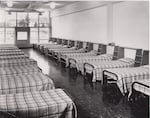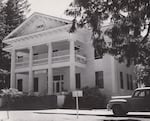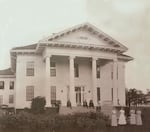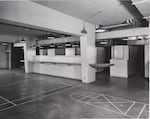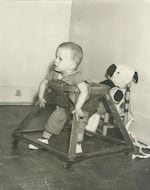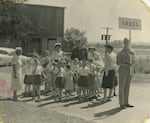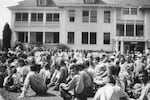Twenty years ago, the last resident left Fairview Training Center. For nearly 100 years, Fairview was Oregon’s primary institution for those with intellectual and developmental disabilities.
Oregon is considered a leader at in-home and community-based services and supports for people with intellectual and developmental disabilities (I/DD). But it wasn’t always that way.
For nearly 100 years, the Fairview Training Center housed thousands of Oregonians with disabilities. The facility opened in 1908 as the State Institution for the Feeble-Minded.
Most of the first patients were transferred from the Oregon State Hospital for the Insane. For decades, residents were officially referred to as ‘inmates.’
Related: Watch: OPB's 'Oregon Experience'
For decades, just about anyone leaving the institution faced compulsory sterilization before returning to the community.
When Ruth Morris lived at Fairview Training Center, her family was given a choice — their daughter could either be sterilized by the state or stay in an institution. Her father signed a paper allowing the surgery and forever taking away her ability to have a child.
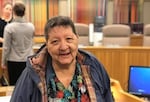
Ruth Morris, Former Fairview Resident and Self Advocate.
Oregon Council on Developmental Disabilities
“I was one of the people that was forcibly sterilized. I did not have a choice. I had to do it. They told me after it was done. I was unhappy, but I couldn’t do anything about it.” — Ruth Morris, former Fairview resident
In the 1970s, some residents banded together to change things. Linda Gheer was one of them. Linda was a teenager living in the state-run institution — and she didn’t like it. She wanted to make her own decisions. Decisions like sleeping in when she felt like it, eating what she wanted, and mostly, she wanted to hang out with her friends.
They were the same things just about any teenager would want. Other residents at the institution felt the same way. In 1974, several residents joined together to create an organization created for, and by, people with disabilities. It was called People First.
People First held its first convention at Otter Crest in 1974. Over 500 people attended. That meeting on the Oregon Coast is generally considered the beginning of the United States' self-advocacy movement for people with developmental disabilities.
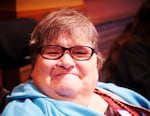
Linda Gheer, Former Fairview Resident and Self Advocate.
Oregon Council on Developmental Disabilities
“People First was to help people get out of on their own and not live in a group home anymore and speak up for themselves.” — Linda Gheer, former Fairview resident
By the 1980s, Fairview was overcrowded and poorly staffed. In 1985, a U.S. Justice Department investigation determined residents faced life-threatening conditions.

Laddie Read, Former Fairview Resident and Self Advocate.
Oregon Council on Developmental Disabilities
“It was hell. How would you feel if you were there?” — Laddie Read, former Fairview resident
Following a federal civil rights lawsuit, Fairview closed in 2000, with most remaining residents moved into the community. Today, Oregon is one of the few states with no institutions for I/DD residents.

Sherri Osburn, Former Fairview Resident and Self Advocate.
Oregon Council on Developmental Disabilities
“I’m very independent now.” — Sherri Osburn, former Fairview resident
Resources
- All Born (in)
- The Arc of Oregon
- Autism Society of Oregon
- Community Vision
- Disability Rights Oregon
- Fact Oregon
- Independence Northwest
- Northwest Down Syndrome Association
- Oregon Council on Developmental Disabilities
- Oregon State Hospital Museum of Mental Health
- State of Oregon: Intellectual and Developmental Disabilities
- United Cerebral Palsy of Oregon and SW Washington
Fairview through the years
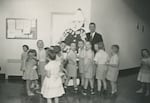
Young Fairview residents, circa 1950s
Oregon Council on Developmental Disabilities

